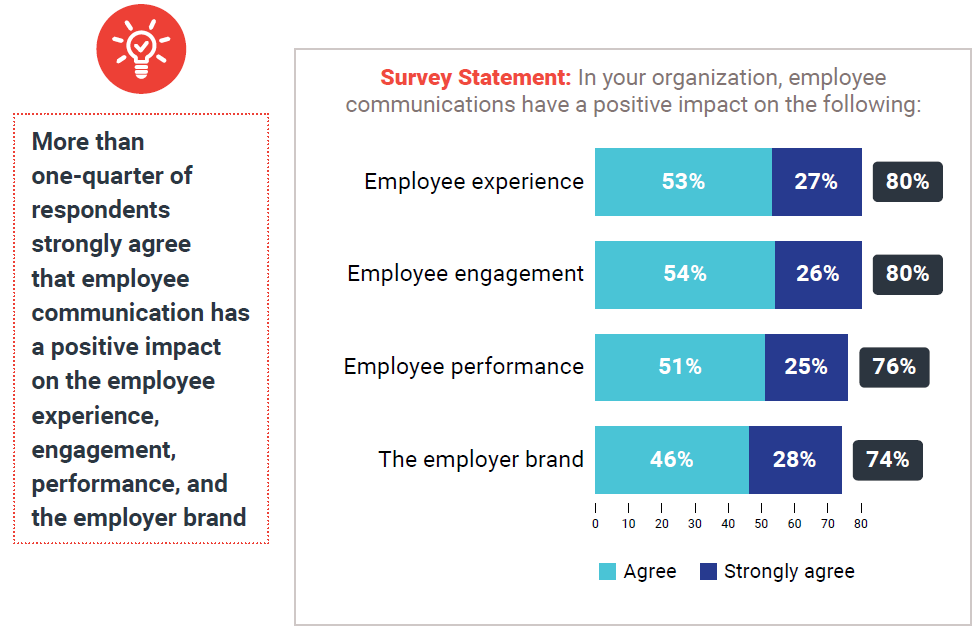More than half of participants say employee communication is extremely important to the success of the organization
There is a strong consensus that employee communication is important, with the large majority saying it is very (36%) or extremely important (52%). As we review the data in this survey, we will reflect on whether this belief in the importance of employee communication is backed up with action.

By organizational size
Large organizations are more likely to consider employee communication extremely important when compared with smaller ones. In large organizations 64% rate it as extremely important, compared to 49% of mid-sized organizations and 46% of small ones. This implies that, although communication is important in firms of all sizes, it is especially crucial to organizations with large employee populations because size can make communications more difficult and complex.
Defining Organizational Sizes
Throughout the report, we look at the findings based on company size. We deem organizations with 1-99 employees as small, and those with 1,000 or more employees as large. Mid-size organizations are those with between 100 and 999 employees.
More than three-quarters of respondents agree or strongly agree that employee communication has a positive impact on the employee experience, engagement, and performance
Why is employee communication seen as so important? One explanation is that it impacts so many critical organizational and talent-management priorities.
In fact, a large majority of respondents believe employee communication has a positive impact on such outcomes. Fully 80% of respondents agree or strongly agree that employee communication has a positive impact on the employee experience and engagement. Nearly as many agree it has a positive impact on employee performance and the employer brand. It is also worth noting that more than one-quarter strongly agree that communication has a positive impact on each of these four areas.

